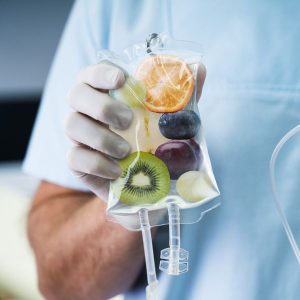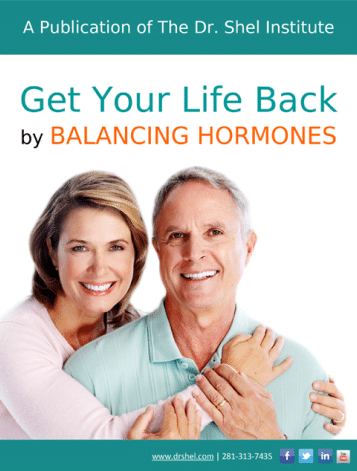When You Stop Ovulating, It Isn’t A One-Step Process… Let Us Explain The Phases And Help You Determine The Right Time For Menopause Treatment in Houston, TX.
Your periods stop for good, and you can no longer have children once you’re in menopause. But it’s not a process that happens overnight; you don’t just wake up one day magically infertile.
The transition can last five to eleven years, varying from woman to woman based on their genetics, health, lifestyle factors, reproductive history, and even ethnicity.
Once this aspect is behind you, you’ll enter postmenopause — a phase that lasts the rest of your life.
But when should you receive menopause treatmentin Houston, TX? Let us weigh in with some expert advice.
Each stage of menopause lasts for different lengths of time and affects you differently. Let Dr. Shel be there when you need treatment most.
Stages of Menopause
Before menstruation stops, you’ll go through a phase when you experience symptoms from your hormones changing. Eventually, your estrogen decreases to its lowest level possible, and your body will no longer release eggs. But it all takes some time and happens in stages.
-
Perimenopause
Perimenopause, meaning around menopause, happens before you stop releasing eggs completely. On average, this stage lasts four years, but it could last for eight to 10 years, notes the Cleveland Clinic. It tends to start when you’re in your 40s or 50s.
During this phase, your ovaries will produce less estrogen as they sense your egg supply is dwindling. You’re then left with estrogen and progesterone levels that are out of whack, to put it simply. Your hormones will continue to fluctuate throughout perimenopause, which triggers symptoms like:
- Irregular periods, possibly missed periods
- Changes in the length and frequency of menstruation
- Mood changes (possibly anxiety or depression)
- Vaginal dryness
- Breast tenderness
- Decreased libido
- Hot flashes
- Changes in skin and hair texture
- Increased urinary urgency and frequency
- Difficulty concentrating
- Sleep disturbances
- Fatigue
- Spotting between periods
- Bone density decrease
As long as you’re still having periods, even if they’re not as frequent as before, you can still get pregnant because you are ovulating at times.
Although the chances of getting pregnant are lower during this phase than when you were younger, you’re more likely at this time to experience a miscarriage or have a baby with birth defects because of hormonal fluctuations and reduced quality of your eggs.
-
Menopause
Menopause happens after perimenopause when you’ve gone 12 consecutive months without a period, typically between the ages of 45 and 55. The average age is about 52.
You won’t know you’re completely through menopause until you go a full year without menstruation, but Dr. Shel can give you a general idea of where you are in the process using blood tests to check your follicle-stimulating hormone and estradiol levels.
These results, paired with your symptoms, give Dr. Shel some insight, but they aren’t surefire ways to determine what stage of menopause you’re in because your hormone levels will vary throughout perimenopause.
You might have hair loss or thinning during menopause, along with the aforementioned symptoms. Just know that menopause symptoms are usually more predictable because your hormone levels remain low, whereas during perimenopause, they change.
That said, symptoms can peak during perimenopause and improve during menopause. On the other hand, some women see continued or worsening symptoms once they’re in menopause.
-
Postmenopause
After you go through that year without any menstruation, you’re on the other side — postmenopause. You officially can’t and won’t get pregnant ever again, nor will you ever need another feminine hygiene product. By the way, this stage will last the rest of your life.
During postmenopause, you might still have some symptoms. It’s even possible that new ones will arise as your body is adapting to the continuous low hormone levels.
Which Stage Is Right for Menopause Treatment in Sugar Land, TX?
Ideally, you want to start treatment whenever you have symptoms that are interfering with your life, which is often during perimenopause.
Some women may not need to begin until menopause or postmenopause. It’s all dependent on when they have symptoms and when/if they’re severe enough to want treatment. And some ladies want to be proactive and start menopause treatment in Houston, before symptoms are severe enough to affect their daily lives.
Generally, therapy is recommended for short-term use, though some women could benefit from extended use. That said, it’s not suggested for lifelong use due to potential risks, such as an increased likelihood of:
- Stroke
- Heart disease
- Certain types of cancer, like breast cancer
- Blood clots
The only way to know for sure is to talk with Dr. Shel. She can take into account your symptoms and do bloodwork. She can also discuss your options, what to expect during and from treatment, and if you have any health concerns that could make treatment unsafe.
Learn more here: A Guide to Loving Yourself: Menopause Treatment in Houston, TX
Making That Call for Less Severe and Frequent Menopause Symptoms
 Some women may have mild symptoms or ones that don’t affect their lives much. They may want to avoid treatment because it won’t benefit them much.
Some women may have mild symptoms or ones that don’t affect their lives much. They may want to avoid treatment because it won’t benefit them much.
However, women with moderate to severe symptoms — or even ones who have bothersome mild symptoms — may want to consider treatment.
Treatment will ease their symptoms so they feel better, making an uncomfortable and unpleasant time manageable. And all treatments are completely customized to you, so you receive maximum relief with fewer side effects and long-term effects.
Peptide therapy might be more up your alley if it’s a little too soon for menopause treatment, but you’d like to keep your body functioning optimally as you age.
Dr. Shel Wellness & Aesthetic Center helped so many others during menopause and the aging process, and our reviews reflect how well we’ve done click here.
Contact us today at (346) 534-6956 or book your appointment here for menopause treatment if you’re battling symptoms of perimenopause, menopause, or postmenopause. Dr. Shel will join you in this fight.


















